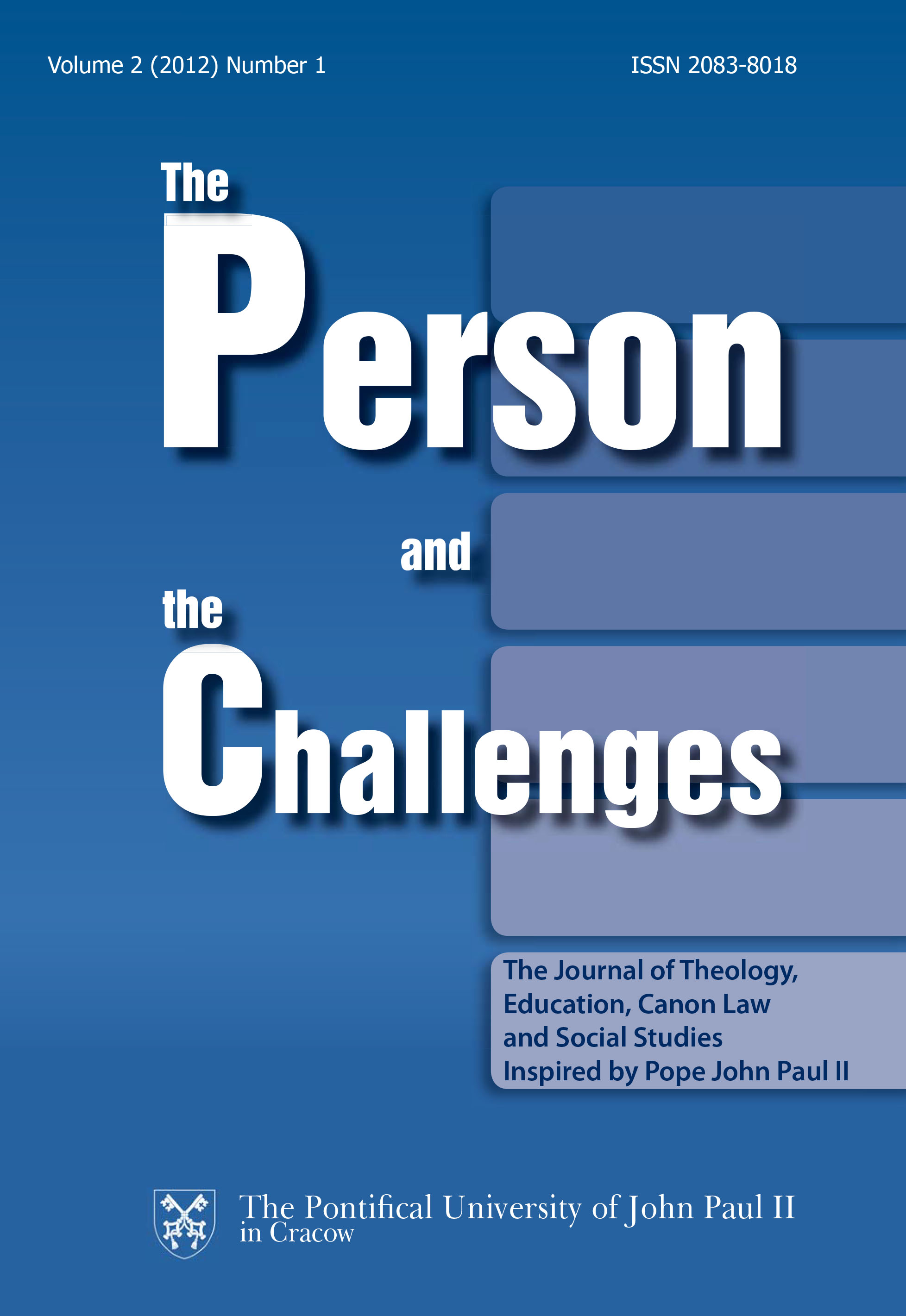Towards a conception of the fundamental values of Catholic education: what we can learn from the writings of John Paul II
DOI:
https://doi.org/10.15633/pch.879Słowa kluczowe:
Catholic education, Pope John Paul II, faith, family, vocation, mission, JesusAbstrakt
This paper sets out to explore and examine online discussions of twenty-two students pursuing the M.A. programme in Catholic School Leadership at St Mary’s University College in Twickenham, London. In response to a question about the views of Blessed Pope John Paul II on the fundamental values of Catholic education, they shared their perceptions through online postings in a virtual learning environment (VLE). The focus of this paper is to draw inferences from the responses that they made.
Bibliografia
Bakhtin M.M., Speech Genres and Other Late Essays, Austin 1986, University of Texas Press.
Catholic Education Service, Education for Love, London1998, CES.
Congregation for Catholic Education, The Catholic School on the Threshold of the Third Millennium, Vatican 1997.
FlanneryA., Vatican Council II: The Conciliarand Post Conciliar Documents, Collegeville 1984, MN: Liturgical Press.
Gallagher M.P., Catholic Schools in England and Wales: New Challenges, in: G. Grace and J. O’Keefe (eds.), International Handbook of Catholic Education: Challenges for School Systems in the 21st Century, Springer 2007, Dordrecht.
Grace G., Mission Integrity: Contemporary Challenges for Catholic School Leaders, Presentation to: ACU: 5th International Conference on Catholic Educational Leadership: Sydney: 2-4 August 2010.
Hayes M. and Gearon L. (eds.), Contemporary Catholic Education, Leominster 2002, Gracewing.
Hornsby-Smith M., Catholic Education: The Unobtrusive Partner, London 1978, Sheed and Ward.
Humphry P., Worship in Catholic Schools, in: Hayes & Gearon 2002, pp. 79-90. Kavanaugh J.K., Following Christ in a Consumer Society, New York 2004, Orbis.
Lydon J., The Contemporary Catholic Teacher: A Reappraisal of the Concept of Teaching as a Vocation in the Catholic Christian Context, St Mary’s University College, Twickenham 2011, unpublished doctoral thesis.
O’Collins G. and Hayes M. (eds.), The Legacy of John Paul II, Leominster 2008, Gracewing Publications.
Pope Paul VI (1965) Declaration on Christian Education (‘Gravissimum Educationis’), in: A. Flannery, Vatican Council II: The Conciliar and Post Conciliar Documents, Collegeville 1984, MN: Liturgical Press.
Pope Paul VI, Apostolic Exhortation: Evngelii Nuntiandi Vatican City 1975, Libreria Editrice Vaticana.
Pope Benedict, Homily at Bellahouston Park, 2010, http://www.kristosmedia.org/Admin/Uploads/media/56/BenedictXVI.pdf (20 I 2012).
Ponti fi cal Council for Justice and Peace, Compendium of the Social Doctrine of the Church, Vatican 2004, Vatican Pubs.
Potter J., Discourse Analysis as a Way of Analysing Naturally Occurring Talk, in: D. Silverman (ed.) 1997, (Chapter 10).
Sapsford R. and Abbott P., Ethics, politics and research, in: R. Sapsford and V. Jupp (eds.), Data Collection and Analysis, London 1996, Sage. Ch. 13 quoted, in: A.R.J. Briggs and M. Coleman (eds.), Research Methods in Educational Leadership and Management, Thousand Oaks CA 2007, Sage (2nd edition.).
Silverman D. (ed.), Qualitative Research, London 1997, Thousand Oaks, New Delhi: SAGE Publications.
Pobrania
Opublikowane
Numer
Dział
Licencja
Prawa autorskie (c) 2015 David Fincham

Utwór dostępny jest na licencji Creative Commons Uznanie autorstwa 4.0 Międzynarodowe.
Autorzy publikujący w czasopiśmie udzielają jego wydawcy zgody o następującej treści:
- Autor zachowuje autorskie prawa majątkowe do utworu, a jednocześnie udziela wydawcy czasopisma zgody na jego pierwszą publikację w wersji drukowanej i wersji online na licencji Creative Commons Uznanie autorstwa 4.0 Międzynarodowe oraz zgody na wykonywanie opracowań, w tym przekładów.
- Autor ma możliwość udzielania zgody niewyłącznej na opublikowanie utworu w wersji, która ukazała się w czasopiśmie (np. zamieszczenia go w repozytorium instytucjonalnym lub opublikowania w książce), wraz z informacją o jego pierwszej publikacji w czasopiśmie.
- Autor może umieścić swój utwór online (np. w repozytorium instytucjonalnym lub na swojej stronie internetowej) jeszcze przed zgłoszeniem utworu do czasopisma.

